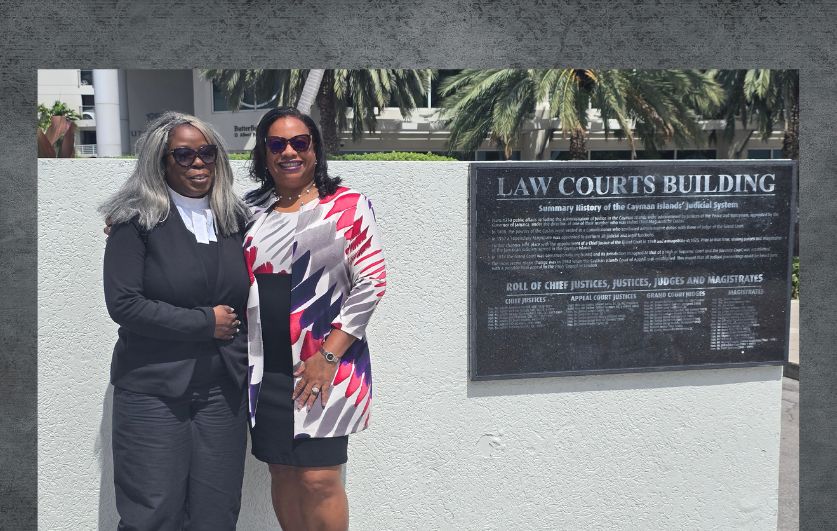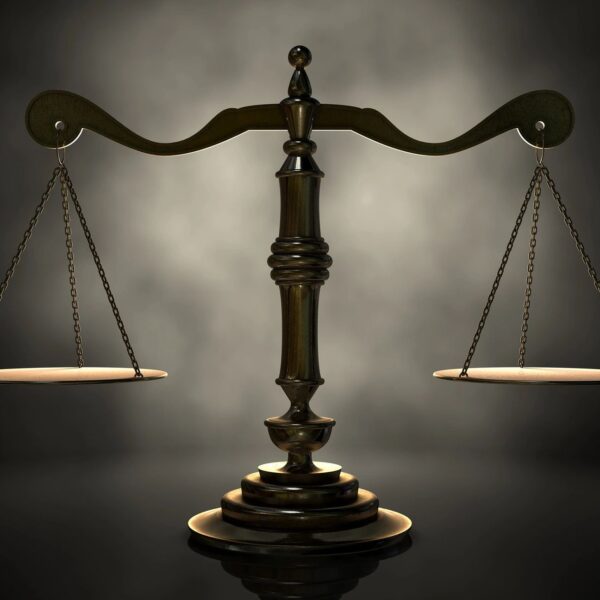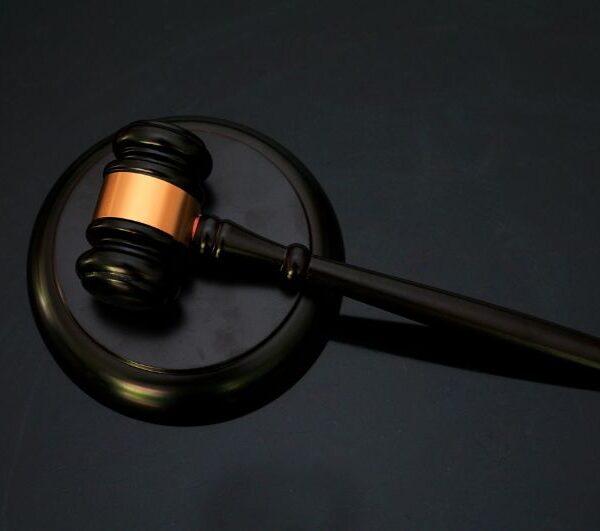
L-R: Ms Amelia Fosuhene of Brady Law and Sandra Teresa Hill
|
Getting your Trinity Audio player ready...
|
By Alric Lindsay
Today, May 29, 2025, a landmark Court of Appeal judgment was delivered in favour of Sandra Teresa Hill, re-emphasising that the fundamental right to free speech under the common law is expressly protected under the laws of the Cayman Islands. The Court of Appeal stressed that the court must have regard to this right, in particular, the judge of the lower court “should not have excluded evidence going to the truth of what was said” on Hill’s podcast about Matthew Leslie several years ago.
Background
For those who are unfamiliar with the Matthew Leslie case, it concerns statements made on Hill’s popular website, known as Cayman Marl Road.
The judgment explained:
Between February 2019 and February 2020, when the judge ordered it be taken down, there was available on the website what was described as a hard-hitting expose.
It lasted about an hour and concerned the complainant in the case, a man called Mathew Leslie.
Mr Leslie had stood in two elections on a platform of transparency and trust.
The podcast, which the judge found amounted to a character assassination of Mr Leslie, described him in terms of being a sexual predator and dishonest in his personal dealings.
The judgment added:
It amounted, said the judge, to a relentless onslaught on Mr Leslie’s character and reputation.
The judge found Hill to be “obsessed with the crusade she had been conducting against Mr Leslie…to the extent that she had lost all sense of proportion, perspective and objectivity.”
The judge made a preliminary ruling during the course of the complainant’s evidence, He was concerned that the complainant was being cross-examined as to the truth of what was said in the podcast. He concluded the truth was irrelevant and stopped the cross-examination.
To prove the case against Hill, the judge said:
To summarize, I conclude that the prosecution must prove the following:
(i) That Mrs Hill knowingly used an ICT network of service, as to which there is no dispute;
(ii) That as a matter of fact, Mr Leslie was abused, annoyed, threatened or harassed by her use of the network;
(ti) That when she used the network, she either intended to abuse, annoy, threaten or harass Mr Leslie, or that she was aware that this would be the likely result.
Ultimately, Hill was convicted in the Grand Court following a judge-alone trial before Justice Roger Chapple (Acting). Hill was fined, and a restraining order was made against her.
Commenting on Justice Roger Chapple’s judgment, the Court of Appeal said:
On the judge’s interpretation, the scope of section 90(1) [of the Information and Communications Technology Act (2017 Revision)] is wide. An accused need not intend to abuse, annoy, threaten or harass a person by what is said. The likelihood that a person would be abused, annoyed, threatened or harassed suffices. It is irrelevant that what is said is or may be true. Evidence going its truth is inadmissible. There is no defence of public interest or fair comment.
We do not agree.
While it may be possible in the present case to seek to interpret section 90(1) without reference to the Constitution, since the enactment of section 11 of the Bill of Rights, and the court’s interpretive obligation under section 25, the fundamental right to free speech under the common law is expressly protected under the law of the Cayman Islands. In our view it is to that express constitutional protection for the citizen to which the court should have regard rather than what might be thought to be the somewhat more opaque concept of the principle of legality.
The Court of Appeal added:
There is little disagreement of substance between the parties. As Ms Ailes put it, the judge wrongly framed the issues principally by reference to the rights of others. He did not, as he was required to do, approach what was said by reference to what is permissible in a free and tolerant society having regard to the importance of the fundamental right to free expression and all the circumstances.
He did not adequately direct himself on the need to give “great weight for free speech” or the need for tolerance of a wide range of opinions (Casserly principle (iii)). Neither did he direct himself that he must give particular weight to free speech given the context that the allegations concerned a person who sought to be elected on a platform of transparency and trust (Casserly principle (iv)).
Although he did give some consideration to freedom of journalistic expression, he did not ultimately regard it as applicable.
The Court of Appeal continued:
An important aspect of the relevant context was the truth or otherwise of what was said in the podcast. Ms Ailes put it in this way: it ‘may have been open to the learned Judge not to hear evidence on the question whether the defendant’s allegations were true. But, having taken that approach, he should have directed himself that it was a part of the relevant context to consider whether those allegations could still be regarded as abusive, annoying or harassing notwithstanding that he had left open the possibility that they might be true, and to consider the extent to which it might be appropriate to give protection to those who make allegations against public figures, in order that the truth of those allegations may be examined, even if they are not professional journalists, in the particular context of the case before him (Casserly principles (ii) and (iv) .’
Mr Fitzgerald went further. He submitted that whether what was said was true is a crucial element of any assessment of the proportionality of criminalising it. The judge should have heard evidence going to it. He should at least have considered what evidence there was before him which went to the issue.
The Court of Appeal concluded:
In our view, the truth or otherwise of what was said is plainly highly relevant when assessing the proportionality of criminalising it.
There is a significant difference in criminalising the expression of what is or may be true and criminalising what is false.
Although we can understand why he did so, it does seem to us, the judge should not have excluded evidence going to the truth of what was said. He should have proceeded on the basis that what was said was, or may have been, true.
In the result, and for the reasons we have set out, we agree that this appeal must be allowed and the conviction quashed. In fairness to the judge, we should observe that the helpful and focused submissions made to us were not made to him.
We have two final observations.
First, our quashing of the conviction does not mean that on a proper application of the law and consideration of all the relevant evidence, it necessarily follows that it would not have been open to the judge to convict.
Second, the allegations in this case go back now some six years. Although we will consider any submissions to the contrary, we doubt that it would now be in the public interest for this case to be re-tried.
For a copy of the full Court of Appeal judgment, please see the file below.





